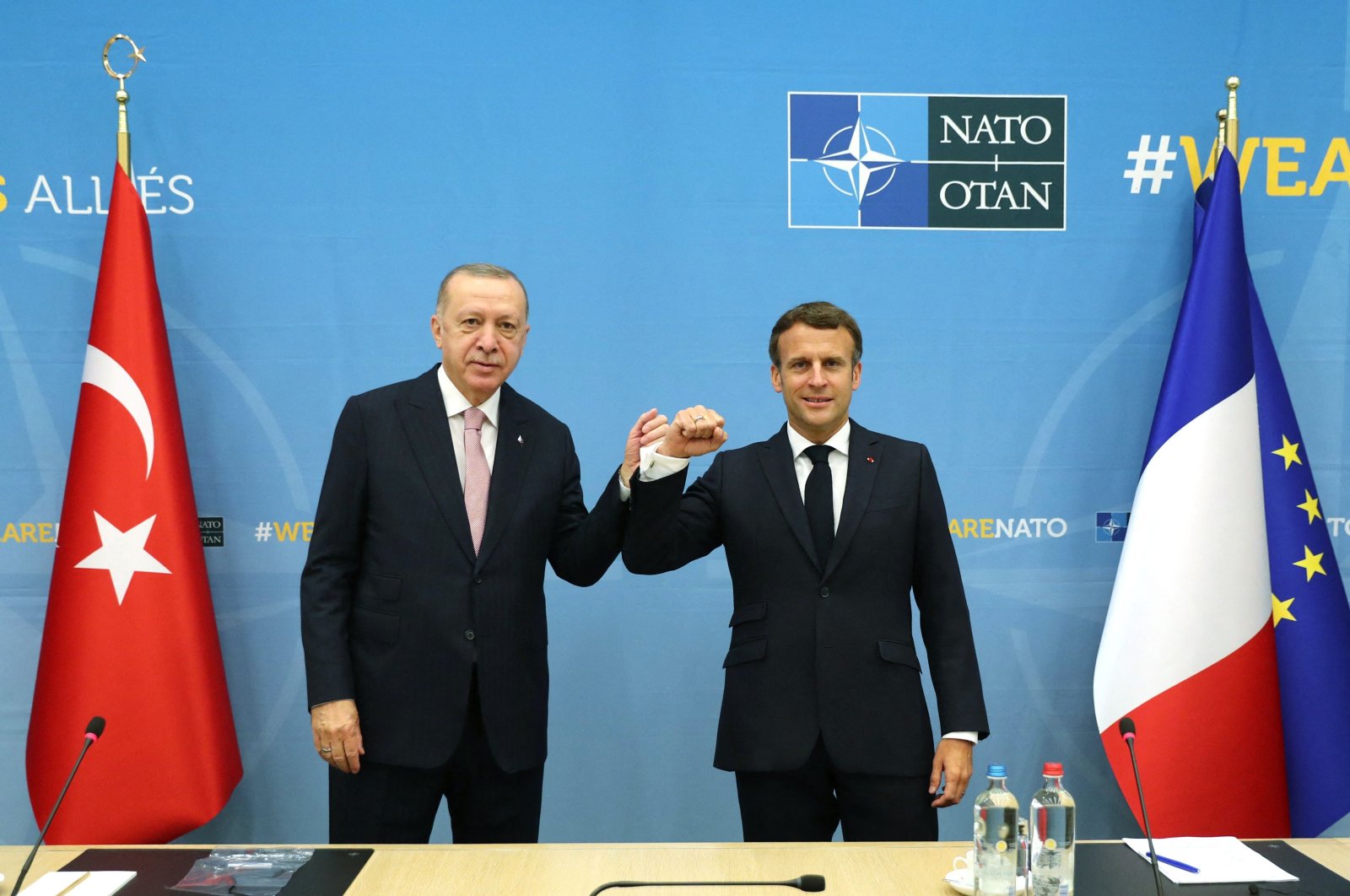'Verbal cease-fire' established between Turkey, France: Paris

France’s foreign minister said Friday that a “verbal cease-fire” has been established between France and Turkey after months of rancorous exchanges that strained the relations of the NATO allies.
President Recep Tayyip Erdoğan and his French counterpart Emmanuel Macron met on the sidelines of the NATO summit this week, following rows on international crises such as Libya, Syria and Nagorno-Karabakh.
Foreign Minister Jean-Yves Le Drian told BFM television that he welcomed the change in tone but said it had to be matched by more concrete steps from Ankara.
“There is a kind of verbal cease-fire. That’s good but it’s not enough,” he said.
“The verbal cease-fire does not mean acts, and we expect Turkey to act on sensitive subjects,” he said, citing Libya, Syria and also the Eastern Mediterranean, where France has backed EU members Greece and the Greek Cypriot administration’s anger over Turkish advances in the waters.
Turkish officials have also decried France’s interference in the Eastern Mediterranean dispute, given it has no territory in the region. The two countries’ dispute escalated further after France sent naval assets into the Eastern Mediterranean to support Greek warships shadowing Turkish ones in disputed waters.
Le Drian also said France was particularly eager to work with Turkey regarding Libya, where Ankara provided major military support to bolster the United Nations-backed Government of National Accord (GNA) in its defense against the offensive to capture the capital Tripoli by the illegitimate forces of putschist Gen. Khalifa Haftar.
France was suspected of supporting Haftar but officially insists it is neutral in the conflict.
Tensions have risen between France and Turkey in recent years and Ankara has repeatedly traded barbs with Paris over its policies on Syria, Libya, the Eastern Mediterranean and other issues. But in February, the NATO members said they were working on a road map to normalize relations.
Macron warned earlier this year that Turkey would try to meddle in France’s 2022 presidential election. He has suggested that Ankara’s unilateral moves on the international stage and its purchase of S-400 air defense missile systems from Russia have contributed to the “brain death” of NATO, of which Turkey is a key member.
A new law introduced by the French government and criticized as being anti-Muslim has also aroused Ankara’s ire, with Erdoğan accusing France of Islamophobia.
Erdoğan last year said Macron needed “mental checks” and expressed hope that France would “get rid of” Macron as soon as possible.
Turkey also accused the French government of tolerating associations affiliated with some terrorist groups that have been operating openly across the country for years and for failing to punish violence against the Turkish community on the grounds of freedom of demonstration and expression.
But there have been tentative signs of an easing of tensions in recent months, with Ankara aiming to strengthen links with Turkey’s Western partners and overcoming disagreements.
This month, Foreign Minister Mevlüt Çavuşoğlu met with his French counterpart Jean-Yves Le Drian in Paris to discuss bilateral ties.
During the visit, Çavuşoğlu said Turkey and France will continue to enjoy friendly relations despite past tension on some issues.
“Turkey and France are two friendly and allied countries. And they will remain so. We must ensure that no misunderstanding comes to disturb this relationship of friendship to which we are sincerely attached,” Çavuşoğlu wrote in an op-ed for the French daily L’Opinion.
